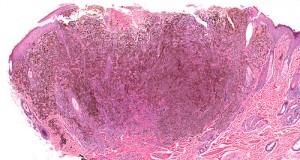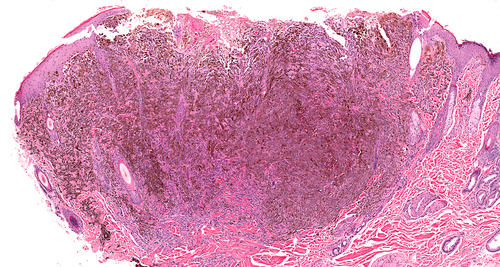 According to recent results presented at the American Society of Clinical Oncology (ASCO) clinical trials studying immune checkpoint inhibitors in the treatment of metastatic renal cell carcinoma (mRCC) are quickly advancing to Phase III.
According to recent results presented at the American Society of Clinical Oncology (ASCO) clinical trials studying immune checkpoint inhibitors in the treatment of metastatic renal cell carcinoma (mRCC) are quickly advancing to Phase III.
Early-phase studies have delivered very promising outcomes, as is the case of nivolumab (PD-1 checkpoint inhibitor) either as a monotherapy or in combination with other checkpoint inhibitors or with tyrosine kinase inhibitors, in the treatment of heavily pretreated patients.
T lymphocytes have a specialized anti-tumoral capacity, however, several different molecules expressed at the surface of these cells, once “activated” prevent them from recognizing and eliminating cancer cells.
Immune checkpoint inhibitors are designed to block these receptors, allowing T cells to maintain their cytotoxic potential.
Ipilimumab (Yervoy, Bristol-Myers Squibb) inhibits the CTLA-4 receptor and has already been approved for treatment of metastatic melanoma.
mRCC could be next in line to receive an approved checkpoint inhibitor therapy, since the data presented as ASCO, even though at an early phase, are extremely encouraging in a scenario of late-stage disease.
One of the largest studies revealed that nivolumab as a monotherapy in 168 mRCC patients who had received at least one antiangiogenic therapy, produced a median overall survival 50% longer than previously reported treatments, ranging from 18.2 to 24.7 months.
The cohorts of patients were randomized to one of three doses of nivolumab (0.3, 2 or 10 mg/kg) administered every three weeks until progression or unacceptable toxicity, and progression-free survival ranged from 2.7 months for the lowest dose to 4.2 months for the highest.
The median overall survival rate in this Phase II trial is, so far, the highest in any study conducted for mRCC, including trials testing sunitinib (RTK inhibitor), temsirolimus or everolimus (mTOR inhibitors).
Following such positive results, more trials are being considered, including a comparison of nivolumab with everolimus.
Other clinical studies are also ongoing, as is the case of a Phase I trial assessing the combination of nivolumab with sunitinib or pazopanib in mRCC patients who received prior systemic therapy including one tyrosine kinase inhibitor. Response rates of combination therapy ranged from 52 to 45% and were significantly higher than any of the treatments alone.
Additionally, in another trial evaluating the combination of nivolumab and ipilimumab in two different doses, the objective response rate was 48% for the most effective combination, and toxic side effects were not significant.
Altogether these data confirm that Phase III trials should move forward and could result in new and improved immunotherapies for patients suffering from mRCC.


